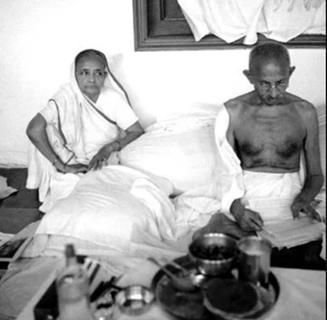Kasturba Gandhi: A Legacy of Resilience and Reform
The country also acknowledges Kasturba's contributions to the freedom movement, recognizing her indomitable spirit and steadfast support alongside Gandhi.
In the grand tapestry of history, where narratives of courage, resilience, and an unyielding quest for justice are woven together, the story of Kasturba Gandhi emerges as a luminous thread. Intertwined with the struggle for India’s independence and the fight for social justice, her life is a testament to her indomitable spirit and profound impact on the world stage. Beyond being the partner of Mahatma Gandhi, a figure of monumental historical importance, Kasturba carved out her legacy, marked by a series of defining experiences and acts that underscore her vital role in India’s freedom movement and her tireless advocacy for social reform.
justice are woven together, the story of Kasturba Gandhi emerges as a luminous thread. Intertwined with the struggle for India’s independence and the fight for social justice, her life is a testament to her indomitable spirit and profound impact on the world stage. Beyond being the partner of Mahatma Gandhi, a figure of monumental historical importance, Kasturba carved out her legacy, marked by a series of defining experiences and acts that underscore her vital role in India’s freedom movement and her tireless advocacy for social reform.
Kasturba’s journey commenced in an era when women of her stature were confined to domestic roles, a stark contrast to her extraordinary spirit. Born into affluence, she defied societal norms even as a child bride in a union with a younger Mohandas Gandhi. This early chapter of her life was not just a prelude but a rebellion against societal and marital expectations, setting the stage for her emergence as a formidable advocate for change.
The crucible of Kasturba’s activism was South Africa, where she and her husband spent several formative years. It was there, amidst the harsh realities of racial discrimination and injustice, that Kasturba’s resolve was galvanized. Together with Gandhi, she helped establish the Phoenix Settlement, a community that became a beacon of resistance and self-sufficiency. Her participation in protests against the mistreatment of Indian immigrants led to her arrest in 1913, an ordeal that, rather than breaking her spirit, fortified her commitment to the struggle for dignity and equality.
Upon returning to India, Kasturba did not retreat into the shadows; she stepped into the sunlight of public engagement. In Champaran, Bihar, she turned her attention to the plight of women, who were then largely illiterate and marginalized. With a literacy rate for women at a staggering low, Kasturba embarked on a revolutionary mission to educate and empower. She organized classes, teaching women not just to read and write but also about hygiene and health, thereby sowing the seeds of empowerment at the grassroots level.
Kasturba’s activism extended beyond education and social reform; she was a pillar of strength in India’s freedom movement. Her leadership shone brightly during times of crisis, such as the Quit India Movement when Gandhi was imprisoned. She rallied Indian women to transcend societal divisions and join the struggle, emphasizing the principles of truth and non-violence. Kasturba’s imprisonment, endured with unwavering resilience, was a source of inspiration for those around her.
Even in the face of chronic bronchitis, Kasturba’s participation in civil disobedience campaigns and protests against British rule remained undeterred. Her ability to mobilize and inspire, particularly among women, added a crucial dimension to the freedom struggle. Yet, her legacy surpasses her contributions to India’s independence. Kasturba’s life is a shining example of compassion, sacrifice, and an unwavering pursuit of equality and justice.
As we reflect on her contributions on her 155th birth anniversary, the legacy of Kasturba Gandhi continues to resonate. Her life reminds us of the power of individual conviction and the impact one person can have on history. In honouring her memory, we are reminded of the ongoing struggle for a just and equitable society and the role each of us can play in achieving it. Kasturba Gandhi’s story is not just a chapter in history; it is a source of inspiration, a call to action for all who believe in the power of change and the enduring strength of the human spirit.
